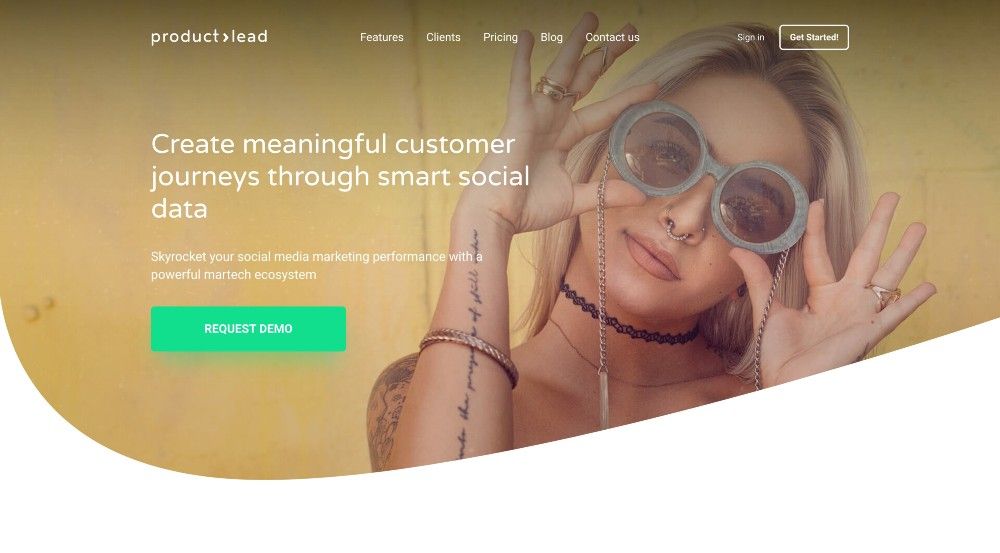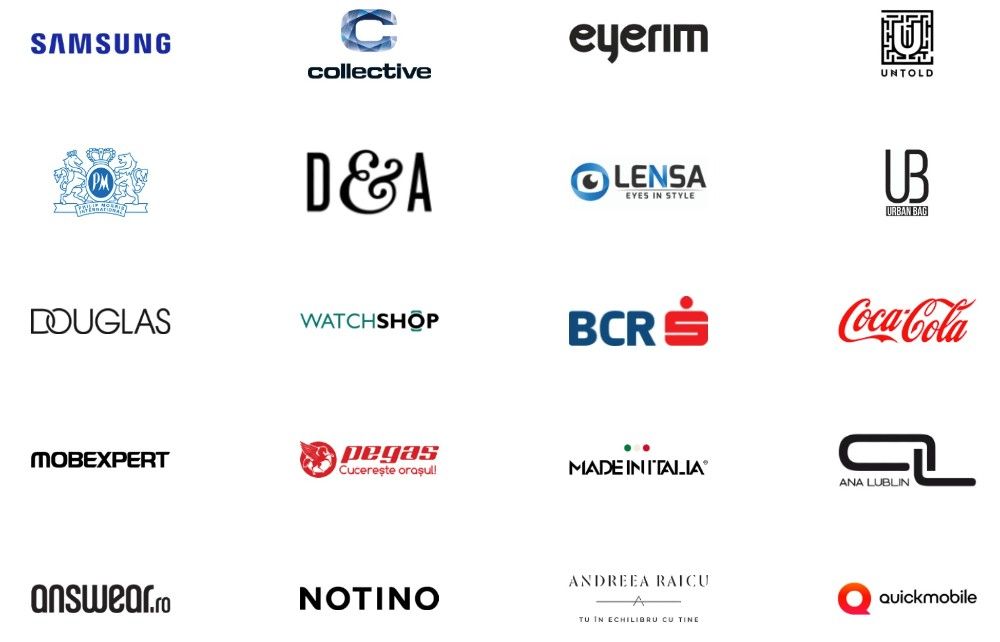ProductLead CEO Mihai Bocai shares how putting customers first is essential for long-term growth
The executive shares how his digital marketing platform got its first generation of paying customers.

In today's business climate supercharged by the internet, new martech startups are cropping up daily. However, only about 50% will be around for five years or more.
One of the biggest reasons for this kind of failure is a martech brand's inability to understand what the market wants.
In an interview with ContentGrip, ProductLead CEO Mihai Bocai discusses the importance of understanding market demand and behavior to build customer trust. He also shares how Romania-based tech startup ProductLead gathered its first cohort of paying users with a customer-centric approach.
Founded in 2017, ProductLead is a digital marketing platform that allows businesses to leverage user-generated content for various marketing needs. The company claims that its platform can help produce content ten times cheaper and faster than traditional methods.
Product Lead is an ‘automatic content generator.’ It allows marketers to easily find out when people are posting about their brand on social media. It then lets them easily incorporate this user-generated content into their marketing assets (think digital ads, banners, etc).
Ecommerce marketers on Product Lead can also create their own attractive shopping galleries inside their websites. Marketers can toss in user-generated content, then add “shoppable pins” to each image. When clicked, these pins lead customers straight to the product page of the item they saw. From here, it's just a matter of adding said item to the shopping cart.
This year, the company successfully raised €600,000 (~US$700,000) in a funding round led by early-stage venture capital firm Sparking Capital. According to the entrepreneur, this brings ProductLead’s total funding to US$900,000. Mihai and his team aim to use the money for product development and market expansion across Europe.
The urge to innovate and create a breakthrough

As a finance graduate, Mihai decided to take a leap and venture into the tech industry. He initially started his own business and ran it for three years. After that, he worked for multiple tech companies, including big firms like IBM. Along the way, however, Mihai felt like he was straying from his true calling — to be a creator, innovator, and entrepreneur.
He stepped out of his comfort zone and pursued a different path by founding Evonomix, a marketing and technology company specializing in strategy, interaction design, engineering, and digital commerce for enterprise clients.
“This entrepreneurial path was a tough and complex one – building teams, shaping and influencing visions, negotiating something every day with everybody. It became a way of life,” says Mihai.
After hanging up his hat at Evonomix, Mihai later co-founded ProductLead with Alexander Stoica-Marcu. He knew that it was incredibly difficult for a service-based company to achieve long-term growth, though not impossible.
He says, “We had a long process of market research and brainstorming. We began looking for a market gap between what customers want and what they get. We were looking for unique opportunities to use tech to help underserved customers. This is how ProductLead was born."
Creating a niche product that fulfills a modern marketer’s needs

Mihai shares the values he deems to be of the utmost importance to digital marketing: automation, personalization, mobility, and customer trust.
According to him, automation, personalization, and mobility must be baked into any worthwhile digital marketing product. ProductLead’s platform aims to simplify the way marketers collect and utilize user-generated content. It helps companies save money on content production and, at the same time, allows them to attract more targeted leads.
ProductLead also taps into the rising trend of social commerce marketing.
Everything mentioned above is important, but Mihai emphasizes that the most important element is customer trust. Without customer trust — and without a deep understanding of market behavior — it's almost impossible to find sustainable, scalable growth, says Mihai.
“Once it’s very clear what problem you are trying to solve, you can define your target audience and buyer personas. B2B marketing is not only about the companies you’re targeting. It's just as much about the person you’re talking with, the ones who’ll take the responsibility of working with you and using your product.”
See: 29 smart B2B content marketing examples and success stories
How ProductLead picked up its first 100 paying customers

ProductLead was originally intended for the same market the founding team was already serving with Evonomix, explains Mihai.
“We imagined ProductLead because we looked at the needs and problems of our customers. So in that sense, they are in a way co-creators of ProductLead."
When just starting out, businesses should find customers that are eager to try new products. Specifically, these should be customers who are willing to engage with a distinct, breakthrough product.
Mihai explains, “The first customers of a new product are sometimes referred to as 'visionaries.' They are not risk-averse and they are willing to experiment so they can get ahead of the curve in their industry. It is a special kind of person and we are always looking for such people in the early stages."
After securing visionaries, businesses can seek out their next customer group, which he refers to as 'early adopters.' While slightly less cowboyish than the visionaries, these people tend to not mind that they are among the first customers.
“They want to balance the risk with some previous success stories," mentions Mihai. "Early adopters are open-minded, pragmatic, and innovation-driven individuals."
Following this formula, ProductLead successfully built an early community of users and expanded its market footprint. Today, global companies like Samsung, Philip Morris International, and Coca-Cola are among ProductLead's notable clients.
Mihai says, “We want to help our target audience first understand the problems they need to find a solution for and then see how this product fits into the big picture. To do this, we will continue working on our content marketing strategy, updating our company’s blog, and leveraging the knowledge and results from campaigns in relevant case studies.”
At the same time, Mihai also expresses the team’s interest in using the account-based marketing approach to find more specific leads in the future.
Walking in your customer's shoes

Ultimately, Mihai’s vision is driven by his core philosophy of prioritizing a customer-centric strategy. From his perspective, martech founders should use empathy to connect with customers and gain their trust.
Looking back, he also recalls how difficult it was for tech businesses in Romania to stay afloat in a time when economic growth was lagging. According to him, in recent years, Romanian tech companies went to great lengths to compete with each other, with some even trying to attract customers via price cuts as deep as 50%.
Today, local businesses are proving to be more creative and enlightened in their marketing tactics (e.g. offering unique value), says Mihai. App builders are doing a much better job of putting themselves in their customer's shoes. He adds that in today's landscape, martech founders anywhere in the world have the chance to grow and expand internationally.


